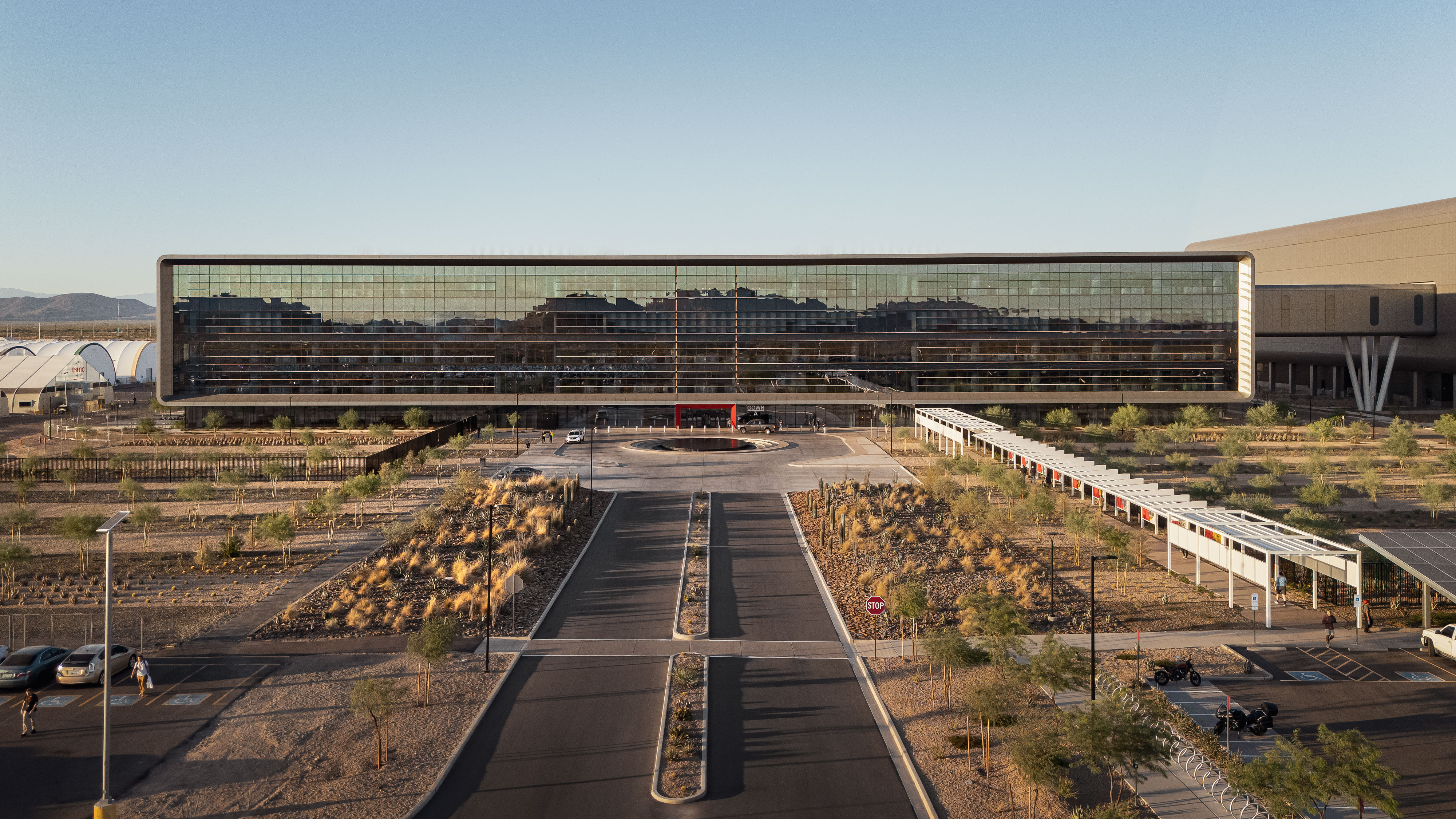China says TSMC's $100 billion U.S. deal shows Taiwan's ruling party is 'selling out Taiwan'
However, the American expansion will only account for 5–7 percent of TSMC's total output, according to industry analyst Ming-Chi Kuo.

In the wake of TSMC announcing that it is making a $100 billion investment in the U.S., to expand its current $65-billion Arizona campus, some critics assert that the company “has become USMC,” and is an “example of the sitting Democratic Progress Party (DPP) selling out Taiwan.” The DPP is the current ruling party on the island nation, and it’s under this government that the company received the go-signal to make 2nm chips abroad. According to the China state-party aligned Global Times, TSMC’s $100 billion announcement will largely cater to America’s strategic needs while negatively impacting Taiwan’s economy.
“The Taiwan chipmaker’s development trajectory and investment direction suggest it’s highly likely that TSMC will be gradually dismantled and absorbed by the U.S.,” said Professor Zhu Songling from the Beijing Union University. “At the core of this strategy lies America’s ambition for technological dominance, trying to gain control over key chip manufacturers and reduce reliance on the Asian supply chain.”
While it’s largely true that the U.S. wants TSMC and other chip manufacturers to build facilities within its borders, it’s unlikely that TSMC’s move will cause the company and Taiwan to lose international strategic value. For one, it’s reported that despite the massive investment, the company’s American expansion will only account for 5–7 percent of its total output. And even if TSMC builds manufacturing capacity in the U.S., it’s unlikely that those factories will be part-and-parceled to American institutions. This is unlike Intel, whose foundry and chip design wings are being considered for sale to TSMC and Broadcom.
This isn’t the first time that Taiwan has been accused of giving away its semiconductor industry to the U.S. Chinese authorities previously said this just last month, accusing the DPP of selling out to the West in exchange for support for independence. Nevertheless, this investment is unlikely to result in TSMC’s dismantling. Instead, it would likely give it an advantage in the U.S. market and could even make it stronger globally.
We can look at the Japanese carmakers during the 1980s as a parallel example. When Washington put restrictions on Japanese auto imports, carmakers like Toyota and Honda put up factories within the U.S., which helped them become some of the leading car brands across the globe. The same thing could potentially happen to the semiconductor industry, with TSMC gaining an advantage within the U.S. market due to its proximity. However, only time will tell if this will come to pass in the semiconductor business.
Get Tom's Hardware's best news and in-depth reviews, straight to your inbox.

Jowi Morales is a tech enthusiast with years of experience working in the industry. He’s been writing with several tech publications since 2021, where he’s been interested in tech hardware and consumer electronics.
-
ohio_buckeye Realistically, it's wise on their part. Looking at different events in that area of the world it's good to diversify. For example haven't they had earthquakes over there in the past? Would be good to have another plant in case something like that happened and wiped out the plant.Reply -
King_V Agreed. I was reading this and wondering how on earth this hurts Taiwan.Reply
It's not like this is somehow going to reduce revenue or hurt jobs in Taiwan, as they can't keep up with demand as it is. -
great Unknown you say "critics", and then publish a quote from Communist China. Let's have a little more transparency here, please.Reply -
dalek1234 The title, and then the sentence below it, and then the "china"...I wish I didn't click on the link. Waste of time.Reply -
helper800 Reply
Despite common misconception, the Chinese are in fact people, and they can be critical.great Unknown said:you say "critics", and then publish a quote from Communist China. Let's have a little more transparency here, please. -
dalek1234 Reply
Yes, then can, but the problem with most things China says, are lies. The credibility is just not there. "China said something" is not much different form "poo-tin said something". And by "china said", I mean CCP , or whomever they told to "say" things.helper800 said:Despite common misconception, the Chinese are in fact people, and they can be critical. -
helper800 Reply
You can say that about every single country and their people if you group them together as such. The nuance is reading about who in particular says something, if what they are saying is evidenced to being biased, et cetera. I very much dislike the whole: chinese person said X so therefore its China actually saying it with no regard to the nuance. Any people and country can be inserted into the same flawed logic. Even if what is being said is straight from Pooh Bear himself, the concerns are probably genuine even if you disagree and think that the concerns are unwarranted.dalek1234 said:Yes, then can, but the problem with most things China says, are lies. The credibility is just not there. "China said something" is not much different form "poo-tin said something". And by "china said", I mean CCP , or whomever they told to "say" things. -
thisisaname Reply
However, the American expansion will only account for 5–7 percent of TSMC's total output, according to industry analyst Ming-Chi Kuo.
5-7% of their total out but what percentage of their smaller nodes is it? -
hotaru251 TSMC's already stated they wont be making nay of their cuttign edge nodes outside of taiwan.Reply
they can make more fabs outside to help production improve w/o harming their primary advantage (their top node) -
ohio_buckeye Reply
A good reason we need Intel to stay solvent imo.bit_user said:@zintoki , we shouldn't assume TSMC fabs in the US can remain operational without continued access to critical IP and support from Taiwan.